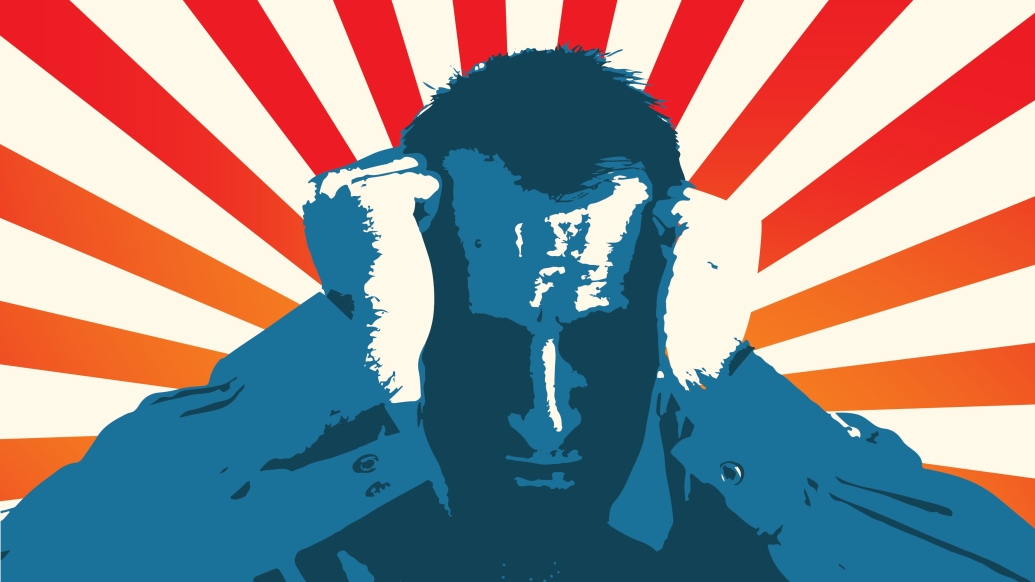A psychologist and sleep expert explains why election-related stress can lead to insomnia, plus strategies to get back on track.
7:00 AM
Author |

It's hard to get a good night's sleep when, at every turn, you're bombarded by polarizing political discussions that have you worrying about the future.
MORE HEALTH NEWS: Sign up for our weekly newsletter
The American Psychological Association found this fall that 52 percent of adults in the U.S. say the election is a very or somewhat significant source of stress. And those worries cross party lines, as both Democrats and Republicans reported tension in this unusual election year.
Leslie Swanson, Ph.D., clinical assistant professor of psychiatry who is certified in behavioral sleep medicine, shares how she's addressing election stress in her patients who are having trouble sleeping.
Are you seeing this trend of high election stress in your patients?
Swanson: Yes, many of my patients are bringing up the election in our sessions. They tell me it's influencing their mood and causing anxiety. I don't remember having many discussions with patients about high levels of stress in previous presidential election years.
How does stress make it difficult to sleep?
Swanson: Stress is one of the biggest triggers for insomnia. One reason for this is that our body responds to stress by sending out the fight-or-flight signal, which can make us more alert, even at night, when we want to be sleeping. Anything that affects your stress level during the day may increase the likelihood that you'll have trouble sleeping well.
How can people sleep better during a stressful time like the presidential election?
Swanson: When you're experiencing stress, it is important to keep your sleep hygiene really clean to minimize the effects of stress on your sleep. That means going to sleep and waking up at the same times every day and keeping a routine of winding down at the end of the night by dimming your lights, turning off technological devices (including the TV) and doing calm activities before bed. Regular practice of a relaxation exercise before bed can reduce stress and dampen the fight-or-flight response.
As we count down to Tuesday's presidential election in particular, I recommend staying off all media for at least 1.5 hours before bed. That means no TV news, no Facebook articles and no tweets, because all of those media outlets have a lot of stressful election-related content right now.
What if people generally keep finding themselves lying in bed, awake and stressed out after bedtime?
Swanson: If you find your worry is interfering with your ability to sleep, set aside time to worry during the day. It's not realistic to avoid worrying entirely, but how you worry can make a difference for your well-being.
Plan to take 20 to 30 minutes during the day to worry, writing out your concerns and then identifying ways you have control over the situation, such as voting, volunteering and donating. If you find yourself worrying outside of your scheduled worry time, remind yourself that you have time set aside to worry later.
If it feels like it's been 15 to 20 minutes and you're still awake, get out of bed. Do something relaxing, such as reading a book in a dim light, listening to music or practicing a relaxation exercise, and only return to your bed when you're sleepy.
After the election, the worry may not be over for people who support the candidate who lost. What do you recommend they do?
Swanson: Continue with good sleep hygiene so you don't run the risk of developing bad habits that could lead to chronic insomnia. And make time to exercise, eat well and do things you enjoy.
Finally, remind yourself of times you've felt similarly disenchanted with a president or governor in the past. You survived! It's important to remember that the beauty of American government is our system of checks and balances.

Explore a variety of health care news & stories by visiting the Health Lab home page for more articles.

Department of Communication at Michigan Medicine
Want top health & research news weekly? Sign up for Health Lab’s newsletters today!





